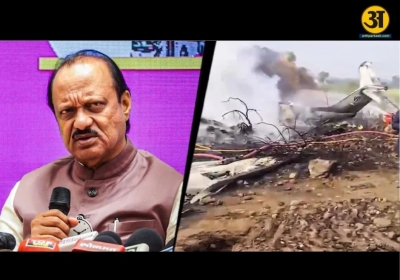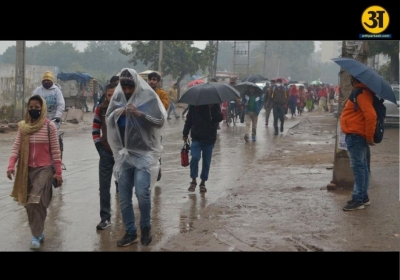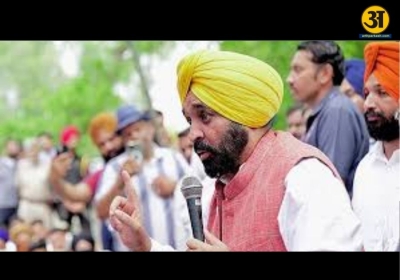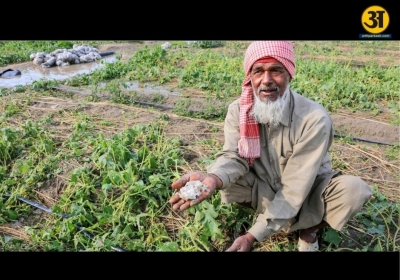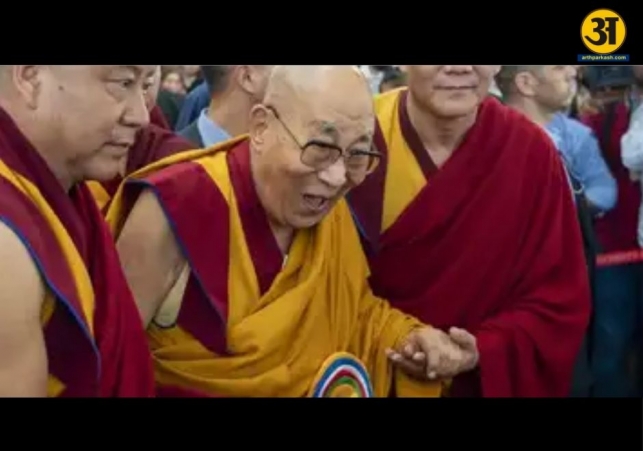
India says Dalai Lama alone will choose his successor
Dalai Lama alone will decide his successor, says India in clear message to China
On July 3, 2025, India made it clear that only the Dalai Lama has the right to decide who will be his next successor. This message came after China claimed that the selection of the next Dalai Lama must be done under its rules and approval.
Union Minister for Minority Affairs, Kiren Rijiju, said in a public statement, “The Dalai Lama holds a deeply significant position not only for Tibetans but also for millions of his followers around the world. The decision regarding his successor lies solely with the Dalai Lama.”
Kiren Rijiju is currently in Dharamshala to attend the 90th birthday celebrations of the Dalai Lama. He is joined by other leaders, including Janata Dal (United) leader Lallan Singh, to represent the Indian government. Rijiju said this was a purely religious event and not political in nature.
Dalai Lama explains his stand
The statement from Rijiju comes a day after the Dalai Lama made it clear that the religious tradition of the Dalai Lama will continue after his death. He also repeated that the authority to choose the 15th Dalai Lama lies with the Gaden Phodrang Trust, which is his official office in exile.
The Dalai Lama’s office stated that the process for selecting his successor was already decided in a document issued on September 24, 2011. That statement made it clear that no one else, including any government, has the right to interfere in the process. Only the Gaden Phodrang Trust and its members will be responsible for deciding the next Dalai Lama.
However, China has a different view. The Chinese government has repeatedly said that any reincarnation of the Dalai Lama must follow Chinese law and be approved by Beijing. According to Mao Ning, the spokesperson for China’s foreign ministry, the process must follow China’s laws, religious practices, and historical customs. China also says that the selection of the next Dalai Lama must take place within China’s borders.
This has created a major disagreement between India and China. India says the Dalai Lama’s successor should be chosen by spiritual leaders and according to religious beliefs, not political rules. On the other hand, China wants to keep full control over the process.
Tibet's long struggle with China
The Dalai Lama has been living in India since 1959. That year, he fled his home in Lhasa, Tibet, after a failed uprising against Chinese rule. Since then, he has lived in exile in Dharamshala, Himachal Pradesh. From there, he continues to lead Tibetans living in exile and support efforts to protect Tibetan religion, language, and culture.
The Chinese government sees the Dalai Lama as a separatist who wants to break Tibet away from China. However, the Dalai Lama has always said that he is not seeking complete independence for Tibet. Instead, he has asked for more autonomy and the right for Tibetans to practice their culture and religion freely.
Across the world, the Dalai Lama is known as a symbol of peace, compassion, and non-violence. Many countries and international organisations support him and admire his teachings. But the issue of his successor remains highly sensitive.
Many Tibetans fear that after the Dalai Lama passes away, China will try to appoint its own version of the next Dalai Lama. They believe this would be a way for China to gain more control over Tibetan religion and people. Critics say that such a move would be politically motivated and would not be accepted by the Tibetan community.
In the past, China has already tried something similar. It appointed its own Panchen Lama—a major Tibetan religious figure—after detaining the boy chosen by the Dalai Lama’s group. That boy, Gedhun Choekyi Nyima, has been missing since 1995 and his whereabouts are still unknown.
This history has made many Tibetan exiles and leaders very cautious. They say it is important that the selection of the next Dalai Lama happens freely and without interference from the Chinese government.
ALSO READ: Mumbai Panipuri seller's son who once failed now gets iit seat
ALSO READ: India set to test K-6 hypersonic missile from submarine, faster than BrahMos
Religious freedom and global support
India’s support for the Dalai Lama’s authority is being seen as a big move. It also reflects India’s stand on religious freedom and its support for Tibetan traditions. Over the years, India has hosted the Dalai Lama and thousands of Tibetan refugees, allowing them to live and practice their religion in peace.
The Indian government’s statement has also sent a message to the global community. It highlights the importance of respecting spiritual traditions and not allowing political powers to interfere in religious matters. Many countries are expected to support this view.
The situation remains tense, however. China continues to insist on its control over Tibet and the selection of religious leaders. It says that it must oversee all matters related to religion inside its territory. But the Tibetan community in exile says that the Dalai Lama’s spiritual role goes far beyond just the borders of Tibet or China. For millions of Buddhists around the world, the Dalai Lama is their spiritual guide.
The Dalai Lama is now 90 years old. He continues to travel, teach, and inspire people across the world. But the question of what happens after him is becoming more urgent.
His clear message, supported by India, is that only he and his office will decide who the next Dalai Lama will be. The global Tibetan community agrees with this and says that any attempt by China to impose a leader will not be accepted.
As the world watches, the future of Tibetan culture, religion, and freedom may depend on how this issue is handled. India’s statement has given strong support to the Dalai Lama and made it clear that spiritual matters should be respected, not controlled.
For now, the Dalai Lama remains a symbol of peace, and his decision about his successor will likely shape the future of Tibetan Buddhism for generations to come.

